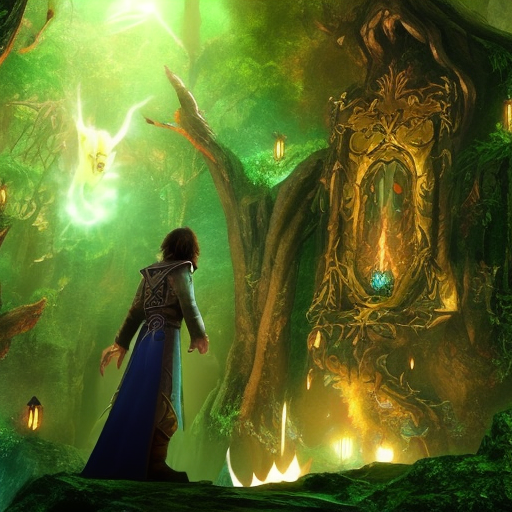Fantasy Films: A Journey into Imaginary Worlds
Fantasy films transport audiences into extraordinary and imaginative realms, filled with magic, mythical creatures, and epic adventures. These films captivate viewers by creating fantastical worlds that defy the laws of reality. From ancient myths and legends to modern-day fairy tales, fantasy films have been enchanting audiences for decades.
The Origins of Fantasy Films
The roots of fantasy films can be traced back to ancient mythology and folklore. Stories of gods, heroes, and mythical creatures have been passed down through generations, captivating listeners with their magical elements. These tales served as the inspiration for early fantasy films, such as “The Wizard of Oz” (1939) and “Snow White and the Seven Dwarfs” (1937).
Characteristics of Fantasy Films
Fantasy films often feature distinct characteristics that set them apart from other genres. These include:
- Imaginary Worlds: Fantasy films create unique and imaginative worlds that are different from our own. These worlds may be filled with mythical creatures, magical powers, and extraordinary landscapes.
- Heroes and Villains: Fantasy films often revolve around a hero’s journey, where a protagonist battles against a powerful villain. These characters may possess extraordinary abilities or magical artifacts.
- Quests and Adventures: Fantasy films frequently involve quests or epic adventures. The protagonist embarks on a journey to fulfill a mission, often encountering various challenges and obstacles along the way.
- Magical Elements: Magic plays a significant role in fantasy films. Characters may possess magical powers, and spells and enchantments are common occurrences.
- Mythical Creatures: Fantasy films introduce audiences to a wide array of mythical creatures, such as dragons, unicorns, elves, and trolls. These creatures add an element of wonder and awe to the story.
Popular Fantasy Film Franchises
Over the years, several fantasy film franchises have captured the hearts and imaginations of audiences worldwide. These franchises have become cultural phenomena, spawning multiple sequels, spin-offs, and merchandise. Some of the most popular fantasy film franchises include:
- The Lord of the Rings: Based on J.R.R. Tolkien’s epic novels, “The Lord of the Rings” trilogy (2001-2003) directed by Peter Jackson, brought Middle-earth to life on the big screen. The films follow the journey of Frodo Baggins as he attempts to destroy the One Ring and save Middle-earth from the dark lord Sauron.
- Harry Potter: The “Harry Potter” series (2001-2011) adapted from J.K. Rowling’s bestselling novels, tells the story of a young wizard named Harry Potter and his friends as they attend Hogwarts School of Witchcraft and Wizardry. The films explore the magical world of witches, wizards, and dark forces.
- Star Wars: While often classified as science fiction, the “Star Wars” saga (1977-present) contains many elements of fantasy. Set in a galaxy far, far away, the films follow the battle between the Jedi and the Sith, with mystical elements such as the Force and lightsabers.
- The Chronicles of Narnia: Based on C.S. Lewis’ beloved novels, “The Chronicles of Narnia” series (2005-2010) transports audiences to the magical land of Narnia. The films depict the adventures of a group of children who stumble upon a wardrobe that leads them to a world filled with talking animals and mythical creatures.
The Impact of Fantasy Films
Fantasy films have had a significant impact on popular culture and the film industry. They have inspired countless books, video games, and merchandise, creating a vast fantasy fandom. These films have also pushed the boundaries of visual effects and filmmaking techniques, bringing fantastical worlds to life with stunning realism.
Furthermore, fantasy films often explore universal themes and offer allegorical interpretations of real-world issues. They provide an escape from reality while simultaneously addressing complex human emotions and societal concerns. Through their imaginative storytelling, fantasy films encourage viewers to dream, believe in magic, and embrace the power of imagination.
In conclusion, fantasy films transport audiences to enchanting worlds filled with magic, mythical creatures, and epic adventures. These films have a rich history rooted in ancient mythology and folklore. They possess distinct characteristics that set them apart from other genres, including imaginary worlds, heroes and villains, quests and adventures, magical elements, and mythical creatures. Popular fantasy film franchises like “The Lord of the Rings,” “Harry Potter,” “Star Wars,” and “The Chronicles of Narnia” have become cultural phenomena, captivating audiences worldwide. Fantasy films have had a profound impact on popular culture, pushing the boundaries of visual effects and storytelling techniques. They offer an escape from reality while exploring universal themes and encouraging viewers to embrace the power of imagination.












